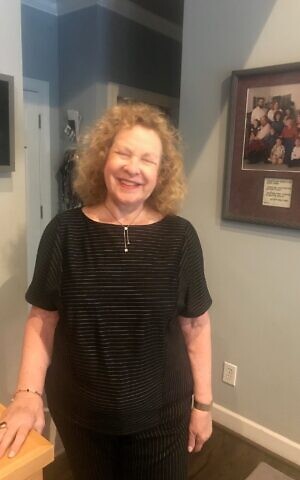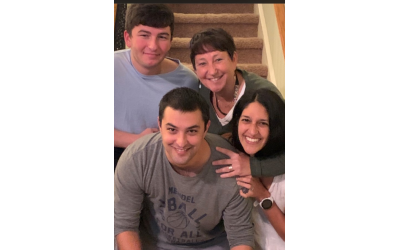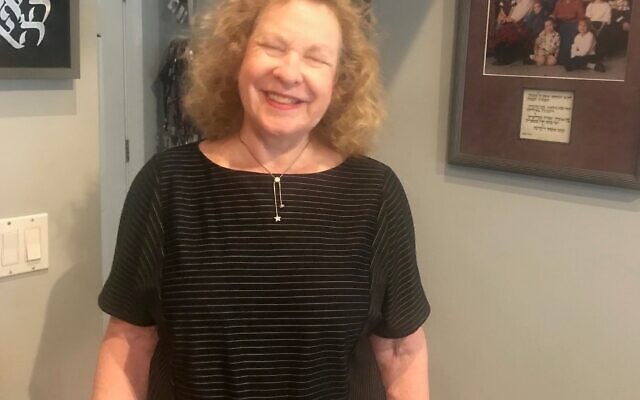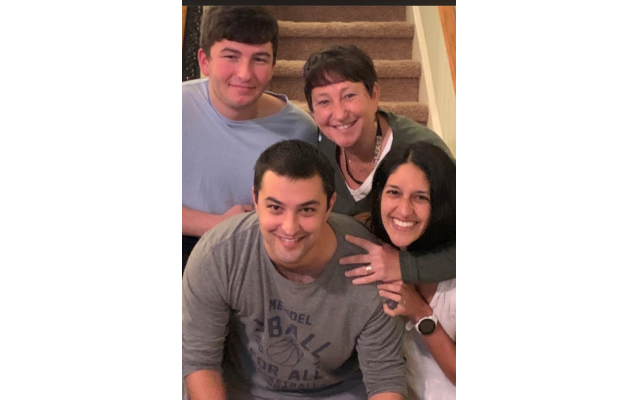What’s Your Parenting Style?
Atlanta parents and professionals talk about setting clear expectations, spending time together, listening without distractions, fostering independence, and being optimistic.
Chana Shapiro is an educator, writer, editor and illustrator whose work has appeared in journals, newspapers and magazines. She is a regular contributor to the AJT.
Clinical psychologist Adina Weiner-Jagoda finds that when they become parents, couples initially rely on the tools they learned from their own mothers and fathers.
“As we mature, we determine what to repeat or reject. Among the many ways to raise children successfully, the key ingredient is spending time together. My own goal is that my three children remain very connected to each other, and I set the example. I send cards to my children, grandchildren and great-grandchildren, and I visit them as often as possible. My husband and I attend all simchas, and I’m in touch with my entire extended family,” Weiner-Jagoda continued.
“Our most meaningful and enjoyable talking time was and is around the Shabbos table. We are a hospitable family, with an open-house policy. Our time and attention remain an intentional, deliberate investment.”

Sheryl Gurvey describes what it’s like to be the mother of three adolescent daughters, ages 13, 15 and 17. “It’s a house full of estrogen! They are close-in-age teenagers, so we frequently live in a very emotional state. I can relate to much, if not all, of what they are going through, so I feel equipped to help them, when they want it!
Gurvey elaborates, “They have very different personalities: my oldest is inquisitive, charismatic, social, and keeps me on my toes. My middle is artistic, empathetic, intelligent, strong willed and self-sufficient. She enjoys friends and also likes doing favorite things alone. My youngest loves hanging out with friends, is smart, organized and reliable.
“When I see them doing things that may lead to failure, I try to remember that failures are learning experiences for my kids and myself. With their independence, however, comes sharing things in their lives with their friends more than with me, yet, as they do the things they enjoy, they are becoming who they are meant to be. I’m excited to see where they each go,” Gurvey said.
“I sometimes catch myself micro-managing, forgetting that my kids are old enough to find their own way in most areas. I am open-minded and easy-going with many things. I am also a solid optimist! I believe my job is to allow independence and self-sufficiency so that they can be on their own one day and succeed in life as adults!”

Sylvia Miller is a school counselor at the Atlanta Jewish Academy for early childhood development through eighth grade. She coordinates Parent Toolbox, classes that help parents guide and support their children. “We know that parent education, parent support and parent involvement are essential to the success of the whole child. We discuss helping our children with anxiety, building resilience, developing healthy habits, navigating healthy relationships, and advocating for themselves when developmentally appropriate,” Miller said.
“Sometimes parents don’t agree, especially concerning discipline. Another issue is the natural separation that occurs when children, who were once an extension of parents, develop their own identities. We want a healthy relationship with our children, even if they’re not just like us and we don’t ‘get’ them.”
Miller likes this spiritual thought from “The Prophet” by Kahlil Gibran: “Your children chose you to be their parent. Your charge is to guide them, not to own them.”
Tova and David Isaacs have five children, ranging from 8 to 17 years old. “Our goals are to raise Torah-observant, kind people with integrity, who are able to make a positive impact on their families, community, and world,” Tova said. “Our biggest concern is dealing with the negative impact of social media so that it doesn’t create pressure to conform to the unrealistic social media world.
“We take a kind, but firm approach to parenting. We don’t need or want our kids to be our friends (we are the referees) but foster a positive parent-child relationship for the future when they are grown. We emphasize everyone doing their best (adults too!) and we are competitive (sports run deep in our family). There are consequences for bad choices. Every child is different and therefore each one may need something different from the others. Things in our house don’t need to be equal, but we work to make them fair. Of course, we deal with “teenatude,” meltdowns, and disagreements. We are blessed with rabbis, a community, family and friends as sounding boards when we get into a pickle,” she said.
“Team Isaacs works hard and plays harder. We support each other, attend each other’s activities and games and do highs and lows (each family member says one good thing and one that made them upset/sad) at least once a week to foster connection and empathy for one other. We love making memories through shared experiences. I believe our children reflect our values, and I’m optimistic we can continue to shape our children as they grow.”
In the 1960s, psychologist Diana Baumrind and her followers posited four general categories of parenting still widely quoted today: authoritarian, authoritative, responsive and permissive. Her studies at the University of California, Berkeley, claimed that children raised by controlling authoritarian parents tend to be moody, easily annoyed and relatively aimless. On the other hand, children with authoritative parents, with clear, sensible rules, become socially responsible, self-reliant, cooperative and achievement oriented.

Responsive parenting is associated with children’s close attachment to parents, academic competence, healthy self-esteem, good social skills and strong morality. Permissive parenting can encourage impulsiveness, self-centeredness, rebelliousness, and low levels of independence and achievement. Baumrind asserted that a combination of authoritative and responsive parenting provides the healthiest home environment.
Lee Rothstein, who has two sons and three grandchildren, calls herself “liberalistic,” believing that listening and love built confidence and independence in her sons, who now encourage their own children to question and explore.
Rothstein stresses chinuch, Hebrew for education that forms character, manners, empathy and responsibility. Instead of reprimands and time-outs, Rothstein removes children from ‘the scene of disruption’ to find out what’s wrong “to show that I care and understand their pain.”
Rothstein found confirmation when she read about the “chat sofa” concept, in which parents find a quiet spot where a child can speak and be comforted. “Young parents don’t always have the time or patience to do what my father did with his grandchildren. He gave them his total attention, explained things and listened to them.”

Parent Marc Goldin, the father of two young adults, offers his parenting method. “We set expectations for our children early. We kept first-grade artwork on the fridge that stated, ‘Do Your Best!’ I think everyone, including our children, would agree that attempting to reach one’s potential is a laudable goal that resonates at every age. We encourage and support this expectation to this day.” His son is an active senior at The Weber School and his daughter is a rising freshman at Columbia University.
“Because we had ‘buy-in’ from them, it was and is easy to redirect less-than-best behavior. Our children’s high expectations are in line with ours, so my support often looks more like ‘holding and supporting,’ rather than ‘pushing and pulling.’
“I would describe my parenting style first and foremost as supportive, and then as firm but fair. Our children have a great deal of leeway with their choices. If poor decisions are made, they understand that they are still loved and supported; therefore, they are comfortable speaking about poor decisions or failures. I encourage them to ‘fail forward,’ to learn from their mistakes and keep growing.
“I write notes to my son every morning and sent weekly texts to my daughter in Israel. We celebrate successes, and who doesn’t like a celebration?”
- Chat sofa
- clinical psychologist
- Teenagers
- teenatude
- chinuch
- Diana Baumrind
- Lee Rothstein
- Adina Weiner-Jagoda
- Sylvia Miller
- Sheryl Gurvey
- Marc Goldin
- Tova Isaacs
- David Isaacs
- Parent Toolbox
- children
- Grandchildren
- The Prophet
- Kahlil Gibran
- Chana Shapiro
- parenting
- Community
- atlanta jewish academy
- Columbia University
- The Weber School







comments